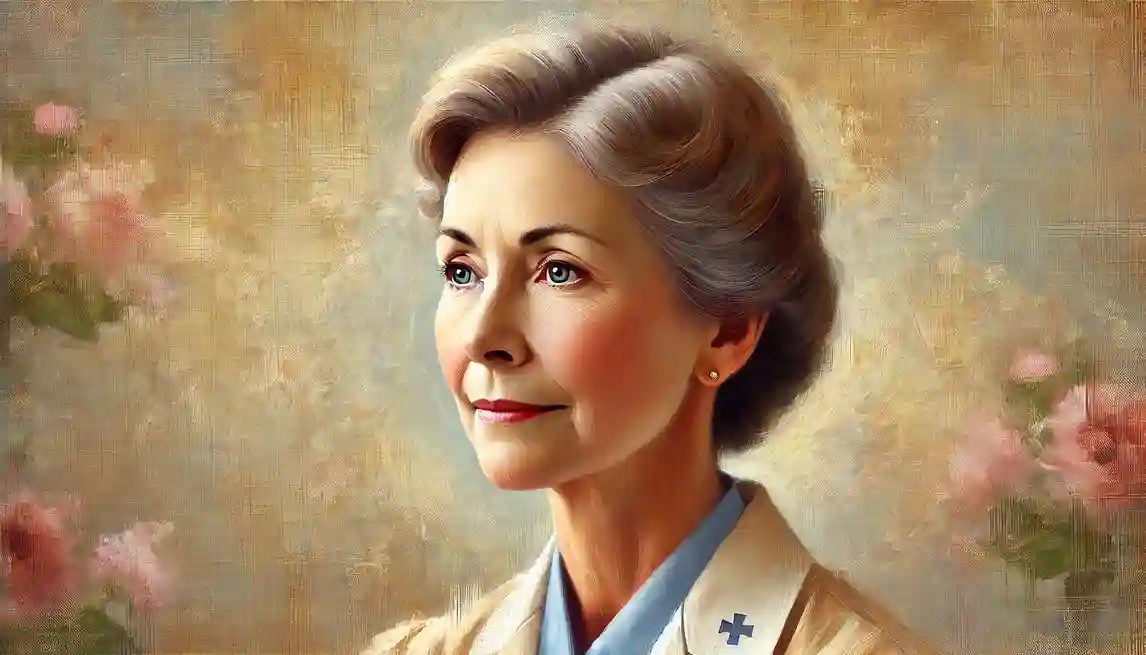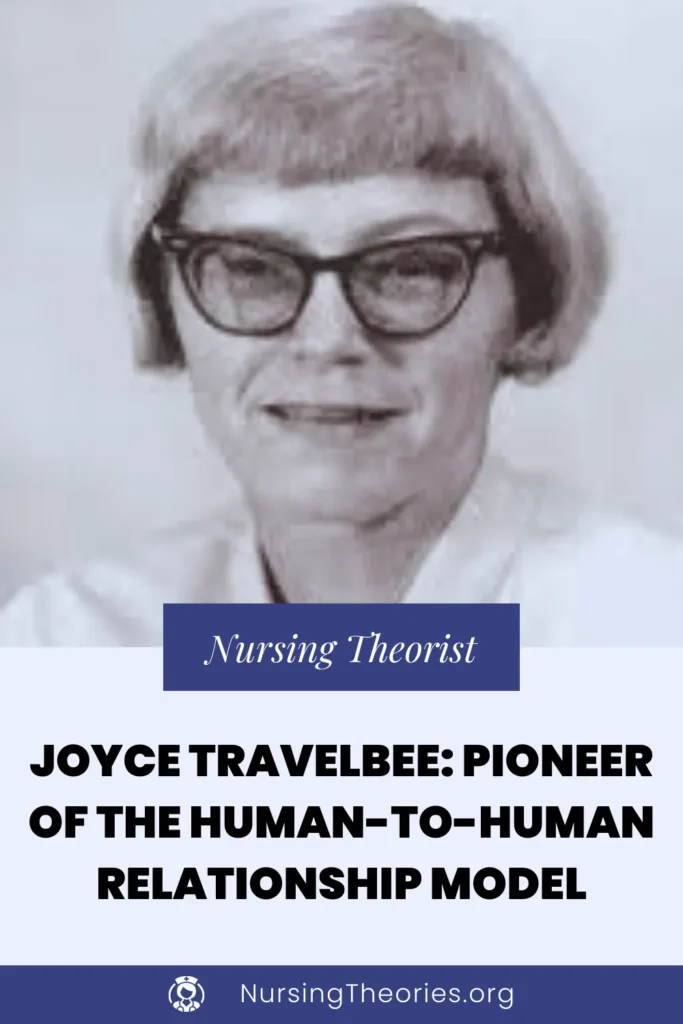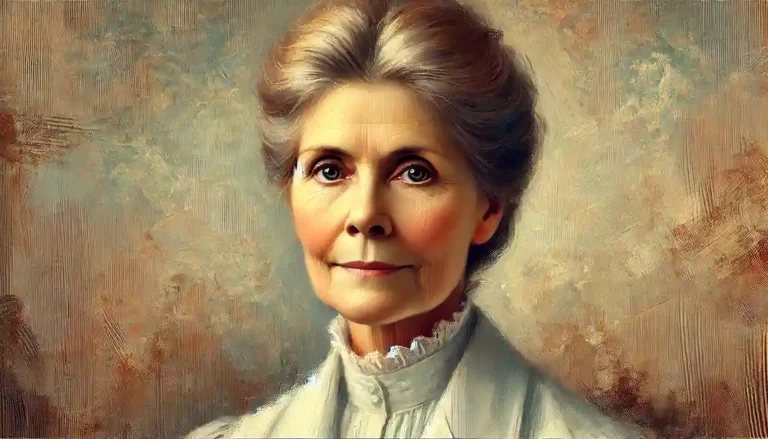Joyce Travelbee, a prominent nurse theorist and educator, is celebrated for her development of the Human-to-Human Relationship Model.
Her theory emphasizes the therapeutic connection between nurses and patients, focusing on empathy, communication, and the human experience of illness and suffering.
Travelbee’s contributions to nursing reshaped how nurses approach care by highlighting the emotional and interpersonal aspects of the nurse-patient relationship.
In this article, we cover Joyce Travelbee’s life, achievements, philosophy, and lasting impact on modern nursing.

Quick Summary
- Developed the Human-to-Human Relationship Model, emphasizing the role of empathy and communication in healing.
- Highlighted the importance of human connection in addressing patients’ emotional and psychological needs.
- Advocated for holistic nursing care that considers the human experience of suffering and recovery.
- Authored influential works that continue to shape nursing education and practice.
- Recognized globally for her role in advancing therapeutic communication and patient-centered care.
Early Life and Background of Joyce Travelbee

Birth and Family Background of Joyce Travelbee
- Joyce Travelbee was born in 1926 in New Orleans, Louisiana, into a family that valued service and compassion.
- Her early experiences in a supportive community inspired her interest in nursing and caring for others.
Education and Early Influences in Travelbee’s Life
- Travelbee earned her nursing diploma from Charity Hospital School of Nursing in New Orleans.
- She later pursued higher education, earning a bachelor’s degree in nursing from Louisiana State University and a master’s degree in psychiatric nursing from Yale University.
- Her studies in psychiatric nursing deeply influenced her understanding of the emotional dimensions of patient care.
Joyce Travelbee’s Philosophy and Vision for Nursing
- Travelbee believed that nursing is more than performing tasks—it involves forming meaningful relationships with patients to address their emotional and psychological needs.
- Her vision emphasized that nurses must understand the unique human experience of illness to provide compassionate, effective care.
- Famous quote: “Nursing is an interpersonal process whereby the professional nurse aids an individual, family, or community to prevent or cope with the experience of illness and suffering.”
Joyce Travelbee’s Education and Early Nursing Career
Formal Education and Nursing Training of Joyce Travelbee
- Travelbee’s academic journey in psychiatric nursing provided her with insights into the psychological and emotional aspects of patient care.
- Her training emphasized the role of empathy, communication, and understanding in promoting healing.
Early Professional Experiences in Travelbee’s Career
- Travelbee worked as a psychiatric nurse and later as a nurse educator, where she observed the critical role of therapeutic relationships in patient recovery.
- Her clinical experiences inspired her to develop a theory that prioritizes human connection and empathy in nursing practice.
Key Achievements and Contributions of Joyce Travelbee
Development of the Human-to-Human Relationship Model
- Travelbee’s model outlines the stages of a nurse-patient relationship, including:
- Original Encounter: The initial meeting where perceptions and judgments are formed.
- Emerging Identities: The nurse and patient begin to see each other as unique individuals.
- Empathy: The nurse understands the patient’s experience and emotions.
- Sympathy: The nurse shares in the patient’s suffering and provides comfort.
- Rapport: A trusting relationship is established, promoting healing and recovery.
- The model emphasizes the importance of building trust and understanding to support patients through their illness.
Contributions to Nursing Education and Curriculum Development
- Travelbee integrated her theory into nursing education, teaching students the importance of empathy, communication, and interpersonal relationships.
- She designed curricula that focus on developing therapeutic communication skills and emotional intelligence.
Research and Theoretical Advancements
- Travelbee conducted research on the psychological impact of illness and the role of human connection in recovery.
- Her studies provided empirical evidence supporting the importance of nurse-patient relationships in improving outcomes.
Global Impact and Recognition
- Travelbee’s theory has been adopted in nursing education and practice worldwide, influencing how nurses interact with patients in various settings.
- She received numerous accolades for her contributions to therapeutic nursing care and education.
Overview of Joyce Travelbee’s Human-to-Human Relationship Model
- The model focuses on forming meaningful connections with patients to address their emotional and psychological needs.
- By fostering empathy and understanding, nurses can provide holistic, patient-centered care that promotes healing.
- To explore this theory in greater depth, visit the in-depth article on the Human-to-Human Relationship Model.
Notable Publications by Joyce Travelbee
- Interpersonal Aspects of Nursing – A foundational text that outlines her theory and its applications in clinical practice.
- Human-to-Human Relationships in Nursing – A book that delves deeper into the psychological and emotional aspects of nursing care.
- Several articles on therapeutic communication, empathy, and patient-centered care.
Challenges and Criticisms of Joyce Travelbee’s Work
Challenges in Implementing the Model in Fast-Paced Settings
- Some nurses have found it challenging to fully implement Travelbee’s model in high-pressure environments such as emergency rooms.
- Travelbee emphasized the importance of adaptability and integrating empathy even in time-constrained situations.
Criticisms of the Subjectivity of the Model
- Critics argue that the emphasis on subjective experiences and empathy can lead to variability in care.
- However, proponents highlight that individualized care often results in better patient outcomes and satisfaction.
Timeline of Major Milestones in Joyce Travelbee’s Life
- 1926: Born in New Orleans, Louisiana.
- 1950s: Earned her nursing diploma and began her clinical career.
- 1960s: Developed the Human-to-Human Relationship Model.
- 1966: Published Interpersonal Aspects of Nursing.
- 1973: Passed away, leaving a lasting legacy in nursing theory and practice.
Legacy and Lasting Impact of Joyce Travelbee
Impact on Nursing Practice and Patient Care
- Travelbee’s theory has transformed how nurses interact with patients, promoting empathy and meaningful communication.
Global Influence and Recognitions
- Her work is taught in nursing schools worldwide and applied in diverse healthcare settings.
- Travelbee’s contributions have earned her posthumous honors and recognition as a leader in therapeutic nursing care.
Final Years and Passing of Joyce Travelbee
- Travelbee continued to mentor students and contribute to nursing education until her passing in 1973.
- Her legacy lives on through the widespread application of her theory in nursing practice and education.
Key Lessons from Joyce Travelbee for Modern Nursing
- Therapeutic communication: Building trust and understanding with patients is crucial for effective care.
- Empathy in practice: Nurses should strive to understand and share in their patients’ experiences.
- Holistic care: Addressing emotional, psychological, and physical needs leads to better outcomes.
- Patient-centered relationships: Developing meaningful connections enhances patient satisfaction and recovery.
- Adaptability: Even in fast-paced environments, empathy and compassion should remain integral to nursing care.
Conclusion
Joyce Travelbee’s Human-to-Human Relationship Model redefined nursing by emphasizing the importance of empathy, trust, and interpersonal connections in healing.
Her work, explored further in the in-depth article on the Human-to-Human Relationship Model, continues to guide nurses globally.
Travelbee’s legacy endures as her theory remains central to therapeutic and holistic nursing care.


